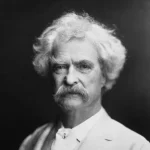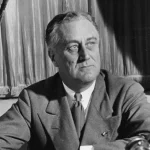“I just received the following wire from my generous Daddy; Dear Jack, Don’t buy a single vote more than is necessary. I’ll be damned if I’m going to pay for a landslide.”

- May 29, 1917 – November 22, 1963
- American
- Politician
- As the 35th President of the United States, he overcame the Cuban Missile Crisis and averted nuclear war, and promoted the Apollo program, laying the foundation for American space exploration.
Quote
“I just received the following wire from my generous Daddy; Dear Jack, Don’t buy a single vote more than is necessary. I’ll be damned if I’m going to pay for a landslide.”
Explanation
This humorous and candid remark from John F. Kennedy reflects the tension between the pressures of political campaigning and the ethics of electoral strategy. The quote comes from a wire allegedly sent by his father, Joseph P. Kennedy, during Jack Kennedy’s run for office. It illustrates the delicate balance of securing enough votes to win without overstepping into excessive or questionable practices. The phrase “Don’t buy a single vote more than is necessary” humorously acknowledges the role of money in politics—an often necessary but ethically fraught element of modern campaigning. Joseph Kennedy’s remark implies that while securing votes may require financial investment, there is a fine line between legitimate campaigning and overspending in a way that might seem to undermine the integrity of the electoral process.
At the same time, the statement reveals the family’s sense of humor and the cynicism that often accompanies political maneuvering. The mention of “a landslide” subtly critiques the desire for overwhelming victories, suggesting that huge margins of victory might imply excessive manipulation or dubious tactics, rather than reflecting a truly democratic and fair win. In this sense, Kennedy’s quote serves as both a reflection on the pragmatics of electoral politics and a tongue-in-cheek comment on the ethical limits of political campaigning.
The relevance of this quote persists in today’s discussions about the influence of money in politics, campaign finance, and the potential for voter manipulation. In an era of super PACs and unlimited spending, Kennedy’s father’s remark could easily be applied to contemporary politics, where the financial aspects of a campaign often overshadow the democratic principles behind it. The tension between securing power and maintaining ethical standards continues to shape political discourse today, reminding us that while political success requires strategic effort, it is important to remember the integrity of the democratic process.



